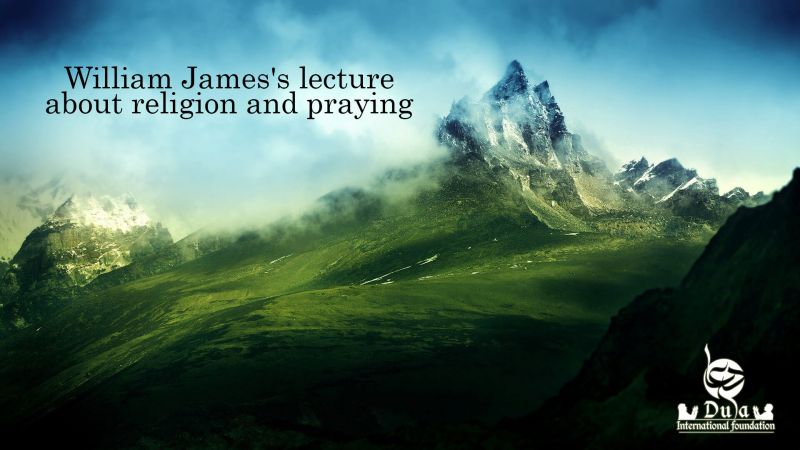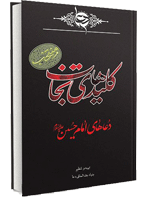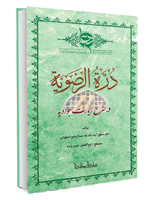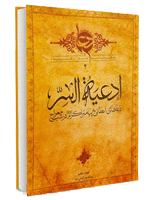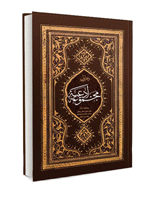- Prophet Muhammad (P.B.U.H&HF): Whenever one of you is needy and brings that to other people, he will not be satisfied. and Whenever someone is needy and brings that to Lord, he shall give him what he wants. sooner or later.
- Imam Sadiq (As.): Whenever you had tenderness in your heart, Pray. because your heart doesn't get tender unless it's pure.
- I told to Imam Baqir (A.S): “What is the meaning of “truly, Ibrahim was awwah and patient”? He replied: “Awwah means (the one who is) praying (to) and wailing (for God) a lot.””
- “Two people, who have acted alike, enter the heaven, but one of them sees the other one in a higher place. Then, he says: O’ Lord! How come has he a superior place in comparison to me while we acted alike? God the Almighty replies: “because he asked Me (whatever he needed) and you did not do that”.
- “The most knowledgeable person to God is the one who asks more from Him”
- “Whoever prays a lot, the angels say: This voice is familiar (to us) and this is the supplication which is accepted and this is the need which is provided”
-
The Holy Prophet (peace be upon him and his Household):
-
وَ لَوْ عَرَفْتُمُ اللَّهَ حَقَّ مَعْرِفَتِهِ لَزَالَتِ الْجِبَالُ بِدُعَائِكُم
If you knew god the way you should’ve known, Mountains definitely will be moved by your supplications. - Crying out of fear of God is the key to his mercy, it’s a sign for his acceptance and it’s a door to answering [supplications]
- Pray to God and believe in his answeres. But understand that God won't accept prays from an unwitting oblivious heart.
WIlliam james's Lecture About Praying
WIlliam james's Lecture About Praying
We have wound our way back, after our excursion through mysticism and philosophy, to where we were before: the uses of religion, its uses to the individual who has it, and the uses of the individual himself to the world, are the best arguments that truth is in it. We return to the empirical philosophy: the true is what works well, even though the qualification "on the whole" may always have to be added. In this lecture we must revert to description again, and finish our picture of the religious consciousness by a word about some of its other characteristic elements. Then, in a final lecture, we shall be free to make a general review and draw our independent conclusions. The first point I will speak of is the part which the aesthetic life plays in determining one's choice of a religion. Men, I said awhile ago, involuntarily intellectualize their religious experience. They need formulas, just as they need fellowship in worship. I spoke, therefore, too contemptuously of the pragmatic uselessness of the famous scholastic list of attributes of the deity, for they have one use which I neglected to consider. The eloquent passage in which Newman enumerates them puts us on the track of it. Intoning them as he would intone a cathedral service, he shows how high is their aesthetic value. It enriches our bare piety to carry these exalted and mysterious verbal additions just as it enriches a church to have an organ and old brasses, marbles and frescoes and stained windows. Epithets lend an atmosphere and overtones to our devotion. They are like a hymn of praise and service of glory, and may sound the more sublime for being incomprehensible. Minds like Newman's grow as jealous of their credit as heathen priests are of that of the jewelry and ornaments that blaze upon their idols.
Newman's imagination so innately craved an ecclesiastical system that he can write: "From the age of fifteen, dogma has been the fundamental principle of my religion: I know no other religion; I cannot enter into the idea of any other sort of religion." And again speaking of himself about the age of thirty, he writes: "I loved to act as feeling myself in my Bishop's sight, as if it were the sight of God." Apologia, 1897, pp. 48, 50.
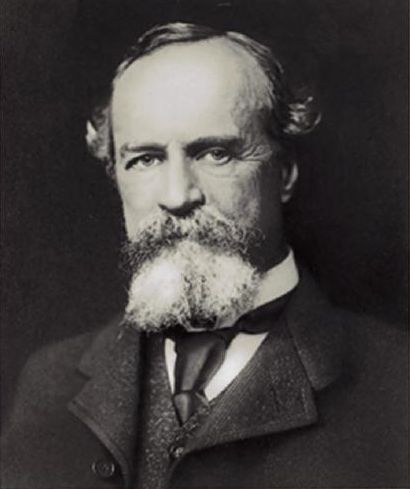
Among the buildings-out of religion which the mind spontaneously indulges in, the aesthetic motive must never be forgotten. I promised to say nothing of ecclesiastical systems in these lectures. I may be allowed, however, to put in a word at this point on the way in which their satisfaction of certain aesthetic needs contributes to their hold on human nature. Although some persons aim most at intellectual purity and simplification, for others RICHNESS is the supreme imaginative requirement.
When one's mind is strongly of this type, an individual religion will hardly serve the purpose. The inner need is rather of something institutional and complex, majestic in the hierarchic interrelatedness of its parts, with authority descending from stage to stage, and at every stage objects for adjectives of mystery and splendor, derived in the last resort from the Godhead who is the fountain and culmination of the system. One feels then as if in presence of some vast incrusted work of jewelry or architecture; one hears the multitudinous liturgical appeal; one gets the honorific vibration coming from every quarter. Compared with such a noble complexity, in which ascending and descending movements seem in no way to jar upon stability, in which no single item, however humble, is insignificant, because so many august institutions hold it in its place, how flat does evangelical Protestantism appear, how bare the atmosphere of those isolated religious lives whose boast it is that "man in the bush with God may meet."[304] What a pulverization and leveling of what a gloriously piled-up structure! To an imagination used to the perspectives of dignity and glory, the naked gospel scheme seems to offer an almshouse for a palace.
The intellectual difference is quite on a par in practical importance with the analogous difference in character. We saw, under the head of Saintliness, how some characters resent confusion and must live in purity, consistency, simplicity (above, p. 275 ff.). For others, on the contrary, superabundance, overpressure, stimulation, lots of superficial relations, are indispensable. There are men who would suffer a very syncope if you should pay all their debts, bring it about that their engagements had been kept, their letters answered their perplexities relieved, and their duties fulfilled, down to one which lay on a clean table under their eyes with nothing to interfere with its immediate performance. A day stripped so staringly bare would be for them appalling. So with ease, elegance, tributes of affection, social recognitions--some of us require amounts of these things which to others would appear a mass of lying and sophistication.
In Newman's Lectures on Justification Lecture VIII. Section 6, there is a splendid passage expressive of this aesthetic way of feeling the Christian scheme. It is unfortunately too long to quote.
It is much like the patriotic sentiment of those brought up in ancient empires. How many emotions must be frustrated of their object, when one gives up the titles of dignity, the crimson lights and blare of brass, the gold embroidery, the plumed troops, the fear and trembling, and puts up with a president in a black coat who shakes hands with you, and comes, it may be, from a "home" upon a veldt or prairie with one sitting-room and a Bible on its centre-table. It pauperizes the monarchical imagination!
The strength of these aesthetic sentiments makes it rigorously impossible, it seems to me, that Protestantism, however superior in spiritual profundity it may be to Catholicism, should at the present day succeed in making many converts from the more venerable ecclesiasticism. The latter offers a so much richer pasturage and shade to the fancy, has so many cells with so many different kinds of honey, is so indulgent in its multiform appeals to human nature, that Protestantism will always show to Catholic eyes the almshouse physiognomy. The bitter negativity of it is to the Catholic mind incomprehensible. To intellectual Catholics many of the antiquated beliefs and practices to which the Church gives countenance are, if taken literally, as childish as they are to Protestants. But they are childish in the pleasing sense of "childlike"--innocent and amiable, and worthy to be smiled on in consideration of the undeveloped condition of the dear people's intellects. To the Protestant, on the contrary, they are childish in the sense of being idiotic falsehoods. He must stamp out their delicate and lovable redundancy, leaving the Catholic to shudder at his literalness. He appears to the latter as morose as if he were some hard-eyed, numb, monotonous kind of reptile. The two will never understand each other--their centres of emotional energy are too different. Rigorous truth and human nature's intricacies are always in need of a mutual interpreter. So much for the aesthetic diversities in the religious consciousness.
Compare the informality of Protestantism, where the "meek lover of the good," alone with his God, visits the sick, etc., for their own sakes, with the elaborate "business" that goes on in Catholic devotion, and carries with it the social excitement of all more complex businesses. An essentially worldly-minded Catholic woman can become a visitor of the sick on purely coquettish principles, with her confessor and director, her "merit" storing up, her patron saints, her privileged relation to the Almighty, drawing his attention as a professional devote, her definite "exercises," and her definitely recognized social pose in the organization.
In most books on religion, three things are represented as its most essential elements. These are Sacrifice, Confession, and Prayer.
The next topic on which I must comment is Prayer--and this time it must be less briefly. We have heard much talk of late against prayer, especially against prayers for better weather and for the recovery of sick people. As regards prayers for the sick, if any medical fact can be considered to stand firm, it is that in certain environments prayer may contribute to recovery, and should be encouraged as a therapeutic measure. Being a normal factor of moral health in the person, its omission would be deleterious. The case of the weather is different. Notwithstanding the recency of the opposite belief,[308] every one now knows that droughts and storms follow from physical antecedents, and that moral appeals cannot avert them. But petitional prayer is only one department of prayer; and if we take the word in the wider sense as meaning every kind of inward communion or conversation with the power recognized as divine, we can easily see that scientific criticism leaves it untouched.
Example: "The minister at Sudbury, being at the Thursday lecture in Boston, heard the officiating clergyman praying for rain. As soon as the service was over, he went to the petitioner and said 'You Boston ministers, as soon as a tulip wilts under your windows, go to church and pray for rain, until all Concord and Sudbury are under water.'" R. W. Emerson: Lectures and Biographical Sketches, p. 363.
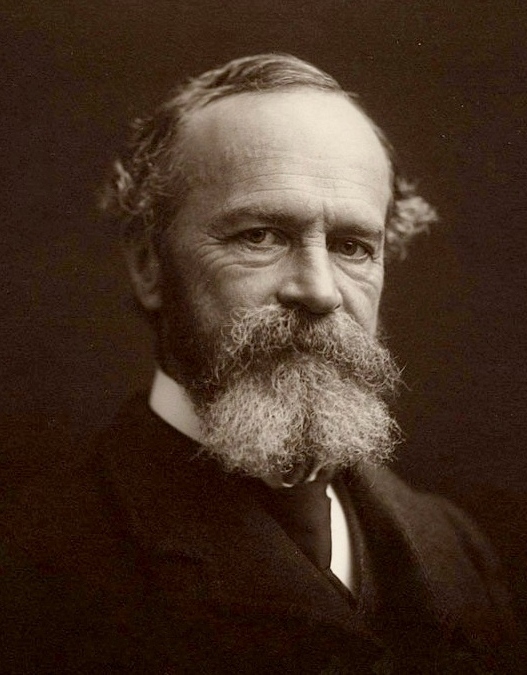
Prayer in this wide sense is the very soul and essence of religion. "Religion," says a liberal French theologian, "is an intercourse, a conscious and voluntary relation, entered into by a soul in distress with the mysterious power upon which it feels itself to depend, and upon which its fate is contingent. This intercourse with God is realized by prayer. Prayer is religion in act; that is, prayer is real religion. It is prayer that distinguishes the religious phenomenon from such similar or neighboring phenomena as purely moral or aesthetic sentiment. Religion is nothing if it be not the vital act by which the entire mind seeks to save itself by clinging to the principle from which it draws its life. This act is prayer, by which term I understand no vain exercise of words, no mere repetition of certain sacred formula, but the very movement itself of the soul, putting itself in a personal relation of contact with the mysterious power of which it feels the presence--it may be even before it has a name by which to call it. Wherever this interior prayer is lacking, there is no religion; wherever, on the other hand, this prayer rises and stirs the soul, even in the absence of forms or of doctrines, we have living religion. One sees from this why "natural religion, socalled, is not properly a religion. It cuts man off from prayer. It leaves him and God in mutual remoteness, with no intimate commerce, no interior dialogue, no interchange, no action of God in man, no return of man to God. At bottom this pretended religion is only a philosophy. Born at epochs of rationalism, of critical investigations, it never was anything but an abstraction. An artificial and dead creation, it reveals to its examiner hardly one of the characters proper to religion."
It seems to me that the entire series of our lectures proves the truth of M. Sabatier's contention. The religious phenomenon, studied as in Inner fact, and apart from ecclesiastical or theological complications, has shown itself to consist everywhere, and at all its stages, in the consciousness which individuals have of an intercourse between themselves and higher powers with which they feel themselves to be related. This intercourse is realized at the time as being both active and mutual. If it be not effective; if it be not a give and take relation; if nothing be really transacted while it lasts; if the world is in no whit different for its having taken place; then prayer, taken in this wide meaning of a sense that SOMETHING IS TRANSACTING, is of course a feeling of what is illusory, and religion must on the whole be classed, not simply as containing elements of delusion--these undoubtedly everywhere exist--but as being rooted in delusion altogether, just as materialists and atheists have always said it was. At most there might remain, when the direct experiences of prayer were ruled out as false witnesses, some inferential belief that the whole order of existence must have a divine cause. But this way of contemplating nature, pleasing as it would doubtless be to persons of a pious taste, would leave to them but the spectators' part at a play, whereas in experimental religion and the prayerful life, we seem ourselves to be actors, and not in a play, but in a very serious reality.
The genuineness of religion is thus indissolubly bound up with the question whether the prayerful consciousness be or be not deceitful. The conviction that something is genuinely transacted in this consciousness is the very core of living religion. As to what is transacted, great differences of opinion have prevailed. The unseen powers have been supposed, and are yet supposed, to do things which no enlightened man can nowadays believe in. It may well prove that the sphere of influence in prayer is subjective exclusively, and that what is immediately changed is only the mind of the praying person. But however our opinion of prayer's effects may come to be limited by criticism, religion, in the vital sense in which these lectures study it, must stand or fall by the persuasion that effects of some sort genuinely do occur. Through prayer, religion insists, things which cannot be realized in any other manner come about: energy which but for prayer would be bound is by prayer set free and operates in some part, be it objective or subjective, of the world of facts.
This postulate is strikingly expressed in a letter written by the late Frederic W. H. Myers to a friend, who allows me to quote from it. It shows how independent the prayer-instinct is of usual doctrinal complications. Mr. Myers writes:--
"I am glad that you have asked me about prayer, because I have rather strong ideas on the subject. First consider what are the facts. There exists around us a spiritual universe, and that universe is in actual relation with the material. From the spiritual universe comes the energy which maintains the material; the energy which makes the life of each individual spirit. Our spirits are supported by a perpetual indrawal of this energy, and the vigor of that indrawal is perpetually changing, much as the vigor of our absorption of material nutriment changes from hour to hour.
"I call these 'facts' because I think that some scheme of this kind is the only one consistent with our actual evidence; too complex to summarize here. How, then, should we ACT on these facts? Plainly we must endeavor to draw in as much spiritual life as possible, and we must place our minds in any attitude which experience shows to be favorable to such indrawal. PRAYER is the general name for that attitude of open and earnest expectancy. If we then ask to whom to pray, the answer (strangely enough) must be that THAT does not much matter. The prayer is not indeed a purely subjective thing;--it means a real increase in intensity of absorption of spiritual power or grace;--but we do not know enough of what takes place in the spiritual world to know how the prayer operates;--WHO is cognizant of it, or through what channel the grace is given. Better let children pray to Christ, who is at any rate the highest individual spirit of whom we have any knowledge. But it would be rash to say that Christ himself HEARS US; while to say that GOD hears us is merely to restate the first principle--that grace flows in from the infinite spiritual world."
Let us reserve the question of the truth or falsehood of the belief that power is absorbed until the next lecture, when our dogmatic conclusions, if we have any, must be reached. Let this lecture still confine itself to the description of phenomena; and as a concrete example of an extreme sort, of the way in which the prayerful life may still be led, let me take a case with which most of you must be acquainted, that of George Muller of Bristol, who died in 1898. Muller's prayers were of the crassest petitional order. Early in life he resolved on taking certain Bible promises in literal sincerity, and on letting himself be fed, not by his own worldly foresight, but by the Lord's hand. He had an extraordinarily active and successful career, among the fruits of which were the distribution of over two million copies of the Scripture text, in different languages; the equipment of several hundred missionaries; the circulation of more than a hundred and eleven million of scriptural books, pamphlets, and tracts; the building of five large orphanages, and the keeping and educating of thousands of orphans; finally, the establishment of schools in which over a hundred and twenty-one thousand youthful and adult pupils were taught. In the course of this work Mr. Muller received and administered nearly a million and a half of pounds sterling, and traveled over two hundred thousand miles of sea and land. During the sixty-eight years of his ministry, he never owned any property except his clothes and furniture, and cash in hand; and he left, at the age of eighty-six, an estate worth only a hundred and sixty pounds.
His method was to let his general wants be publicly known, but not to acquaint other people with the details of his temporary necessities. For the relief of the latter, he prayed directly to the Lord, believing that sooner or later prayers are always answered if one have trust enough. "When I lose such a thing as a key," he writes, "I ask the Lord to direct me to it, and I look for an answer to my prayer; when a person with whom I have made an appointment does not come, according to the fixed time, and I begin to be inconvenienced by it, I ask the Lord to be pleased to hasten him to me, and I look for an answer; when I do not understand a passage of the word of God, I lift up my heart to the Lord that he would be pleased by his Holy Spirit to instruct me, and I expect to be taught, though I do not fix the time when, and the manner how it should be; when I am going to minister in the Word, I seek help from the Lord, and . . . Am not cast down, but of good cheer because I look for his assistance."
Muller's custom was to never run up bills, not even for a week. "As the Lord deals out to us by the day, . . . The week's payment might become due and we have no money to meet it; and thus those with whom we deal might be inconvenienced by us, and we be found acting against the commandment of the Lord: 'Owe no man anything.' From this day and henceforward whilst the Lord gives to us our supplies by the day, we purpose to pay at once for every article as it is purchased, and never to buy anything except we can pay for it at once, however much it may seem to be needed, and however much those with whom we deal may wish to be paid only by the week."
The articles needed of which Muller speaks were the food, fuel, etc., of his orphanages. Somehow, near as they often come to going without a meal, they hardly ever seem actually to have done so. "Greater and more manifest nearness of the Lord's presence I have never had than when after breakfast there were no means for dinner for more than a hundred persons; or when after dinner there were no means for the tea, and yet the Lord provided the tea; and all this without one single human being having been informed about our need. . . . Through Grace my mind is so fully assured of the faithfulness of the Lord, that in the midst of the greatest need, I am enabled in peace to go about my other work. Indeed, did not the Lord give me this, which is the result of trusting in him, I should scarcely be able to work at all; for it is now comparatively a rare thing that a day comes when I am not in need for one or another part of the work."
In building his orphanages simply by prayer and faith, Muller affirms that his prime motive was "to have something to point to as a visible proof that our God and Father is the same faithful God that he ever was--as willing as ever to prove himself the living God, in our day as formerly, to all that put their trust in him."[312] For this reason he refused to borrow money for any of his enterprises. "How does it work when we thus anticipate God by going our own way? We certainly weaken faith instead of increasing it; and each time we work thus a deliverance of our own we find it more and more difficult to trust in God, till at last we give way entirely to our natural fallen reason and unbelief prevails. How different if one is enabled to wait God's own time, and to look alone to him for help and deliverance! When at last help comes, after many seasons of prayer it may be, how sweet it is, and what a present recompense! Dear Christian reader, if you have never walked in this path of obedience before, do so now, and you will then know experimentally the sweetness of the joy which results from it."
When the supplies came in but slowly, Muller always considered that this was for the trial of his faith and patience When his faith and patience had been sufficiently tried, the Lord would send more means. "And thus it has proved,"--I quote from his diary--"for today was given me the sum of 2050 pounds, of which 2000 are for the building fund [of a certain house], and 50 for present necessities. It is impossible to describe my joy in God when I received this donation. I was neither excited nor surprised; for I LOOK out for answers to my prayers. I BELIEVE THAT GOD HEARS ME. Yet my heart was so full of joy that I could only SIT before God, and admire him, like David in 2 Samuel vii. At last I cast myself flat down upon my face and burst forth in thanksgiving to God and in surrendering my heart afresh to him for his blessed service."
George Muller's is a case extreme in every respect, and in no respect more so than in the extraordinary narrowness of the man's intellectual horizon. His God was, as he often said, his business partner. He seems to have been for Muller little more than a sort of supernatural clergyman interested in the congregation of tradesmen and others in Bristol who were his saints, and in the orphanages and other enterprises, but unpossessed of any of those vaster and wilder and more ideal attributes with which the human imagination elsewhere has invested him. Muller, in short, was absolutely unphilosophical. His intensely private and practical conception of his relations with the Deity continued the traditions of the most primitive human thought.[315] When we compare a mind like his with such a mind as, for example, Emerson's or Phillips Brooks's, we see the range which the religious consciousness covers.
If we turn to Islam, we find that Mohammed's revelations all came from the subconscious sphere. To the question in what way he got them—
"Mohammed is said to have answered that sometimes he heard a knell as from a bell, and that this had the strongest effect on him; and when the angel went away, he had received the revelation. Sometimes again he held converse with the angel as with a man, so as easily to understand his words. The later authorities, however, . . . Distinguish still other kinds. In the Itgan the following are enumerated: 1, revelations with sound of bell, 2, by inspiration of the holy spirit in M.'s heart, 3, by Gabriel in human form, 4, by God immediately, either when awake (as in his journey to heaven) or in dream. . . . In Almawahib alladuniya the kinds are thus given: 1, Dream, 2, Inspiration of Gabriel in the Prophet's heart, 3, Gabriel taking Dahya's form, 4, with the bell-sound, etc., 5, Gabriel in propria persona (only twice), 6, revelation in heaven, 7, God appearing in person, but veiled, 8, God revealing himself immediately without veil. Others add two other stages, namely: 1, Gabriel in the form of still another man, 2, God showing himself personally in dream."
When, in addition to these phenomena of inspiration, we take religious mysticism into the account, when we recall the striking and sudden unifications of a discordant self which we saw in conversion, and when we review the extravagant obsessions of tenderness, purity, and self-severity met with in saintliness, we cannot, I think, avoid the conclusion that in religion we have a department of human nature with unusually close relations to the transmarginal or subliminal region. If the word "subliminal" is offensive to any of you, as smelling too much of psychical research or other aberrations, call it by any other name you please, to distinguish it from the level of full sunlit consciousness. Call this latter the A-region of personality, if you care to, and call the other the B-region. The B-region, then, is obviously the larger part of each of us, for it is the abode of everything that is latent and the reservoir of everything that passes unrecorded or unobserved. It contains, for example, such things as all our momentarily inactive memories, and it harbors the springs of all our obscurely motived passions, impulses, likes, dislikes, and prejudices. Our intuitions, hypotheses, fancies, superstitions, persuasions, convictions, and in general all our non-rational operations, come from it. It is the source of our dreams, and apparently they may return to it. In it arise whatever mystical experiences we may have, and our automatisms, sensory or motor; our life in hypnotic and "hypnoid" conditions, if we are subjects to such conditions; our delusions, fixed ideas, and hysterical accidents, if we are hysteric subjects; our supra-normal cognitions, if such there be, and if we are telepathic subjects. It is also the fountain-head of much that feeds our religion. In persons deep in the religious life, as we have now abundantly seen--and this is my conclusion--the door into this region seems unusually wide open; at any rate, experiences making their entrance through that door have had emphatic influence in shaping religious history.
With this conclusion I turn back and close the circle which I opened in my first lecture, terminating thus the review which I then announced of inner religious phenomena as we find them in developed and articulate human individuals. I might easily, if the time allowed, multiply both my documents and my discriminations, but a broad treatment is, I believe, in itself better, and the most important characteristics of the subject lie, I think, before us already. In the next lecture, which is also the last one, we must try to draw the critical conclusions which so much material may suggest.
"A Summery from one of William James's lecture about religion and
praying"
